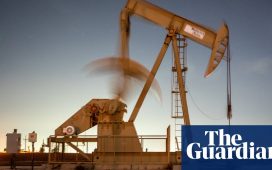The world’s biggest wind power developer has cancelled plans for one of the UK’s largest offshore windfarms, in a significant blow to the government’s green energy targets.
The Danish wind power company Ørsted said the Hornsea 4 project no longer made economic sense because of soaring costs in the industry’s global supply chain, after it won a government contract last year.
The decision to halt work on the project is a major blow to the government’s plan to quadruple the UK’s offshore wind capacity by the end of the decade to help create a virtually fossil-fuel-free electricity system.
The fourth phase of the huge Hornsea windfarm, located off the Yorkshire coast, was expected to use 180 giant turbines to generate enough green electricity to power the equivalent of 1m homes, or 2.4 gigawatts of power capacity.
Ørsted’s chief executive, Rasmus Errboe, said “the combination of increased supply chain costs, higher interest rates and increased execution risk” meant the project was unlikely to provide value for the company.
The project is the latest to be derailed by increased costs caused by higher inflation and interest rates combined with problems in the global offshore wind supply chain in recent years.
Last year Ørsted scrapped two offshore wind projects off the US coast because of concerns over rising costs and delayed the start of a third project off the coast of Rhode Island and Connecticut by a year, to 2026.
In 2023 the Swedish energy company Vattenfall stopped work on the multibillion-pound Norfolk Boreas windfarm in the North Sea, which was designed to power the equivalent of 1.5m British homes, because it was no longer profitable.
Ørsted said on Wednesday that the wind industry faced short-term challenges such as supply chain issues and “regulatory and macroeconomic developments”.
Such problems have led to concerns over the UK government’s renewable energy goals, piling pressure on its auction for new renewable energy contracts.
The government plans to double the UK’s onshore wind, triple its solar power and quadruple its offshore wind power capacity by the end of the decade. It hopes to relegate gas plants to just 5% of the UK’s electricity generation by 2030 to create a clean power system.
Dhara Vyas, the chief executive of Energy UK, which represents the industry, said the loss would “raise the stakes” on the the next auction round, due in the summer, and it was “vital that the government doubles down to ensure [it] is a success”.
Jane Cooper, the deputy chief executive of RenewableUK, another industry group, said the auction’s parameters should reflect the industry’s costs.
Cooper also called on the government to rule out the introduction of controversial plans to overhaul the electricity market by introducing “zonal pricing”, which she said would “drive the cost of investment up even further”.
after newsletter promotion
A government spokesperson said it continued to have “a strong pipeline of projects” to provide clean power by 2030 and it would work with Ørsted to get Hornsea 4 back on track.
The spokesperson added: “Through our mission we will deliver an energy system that brings energy bills down for good and bolsters Britain’s energy security as part of our plan for change.”
For US windfarm developers the economic challenges facing the industry have been compounded by the incoming Trump administration’s vow to end offshore wind development “on day one”. It has issued a stop-work order to a major offshore wind project developed by Norway’s state energy company Equinor.
However, Ørsted said the long-term outlook for offshore was strong because of the world’s growing demand for electricity and a fresh focus on “energy security and affordability” that renewable energy provides.
It has been a turbulent time for Ørsted: it implemented a restructuring plan in 2024, and it cancelled dividend payouts to shareholders for the 2023-25 financial years in an attempt to bolster its finances. Its market value has plunged by about 80% since its peak in 2021.
Britain’s offshore energy industry took another blow on Wednesday when the largest oil and gas producer in the North Sea set out plans to shrink its Aberdeen-based workforce by a quarter.
Harbour Energy blamed the UK government’s windfall tax on North Sea oil and gas revenues – the so-called energy profit levy – for its financial struggles, which could lead to up to 250 jobs being cut from the company in the coming months.











